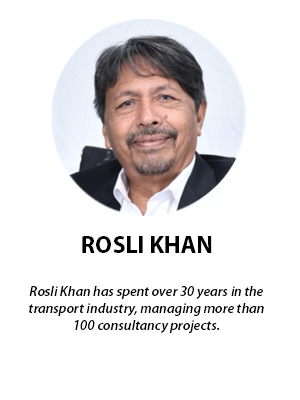
With the tabling of Budget 2024 fast approaching, one of the questions plaguing the government will no doubt be whether it should persist with the deeply entrenched fuel subsidy policy.
While the subsidy does save the rakyat considerable sums of money every year, one cannot ignore the fact that it also raises other concerns. It inadvertently promotes car ownership, thereby raising the usage of private vehicles, resulting in the urban gridlocks that we are accustomed to seeing on our city streets and highways.
A common narrative posits that our B40 demographic stands as the primary beneficiary of these subsidies. But is this assertion rooted in reality?
Logically, wouldn’t it make more economic sense for the average B40 household to utilise cost-effective public transportation rather than shoulder the continuous expenses associated with car ownership?
That being the case, the question remains: Who benefits from these subsidies the most?
Who benefits?
Take, for example, a typical motorcyclist commuting in my vicinity, and contrast it with my affluent neighbour whose garage boasts a fleet of cars – from a modest Porsche to a grand Bentley – and employs the motorcyclist as his driver.
The motorcyclist’s 150cc bike, refuelled for roughly RM10, can comfortably cover 250 km.
Meanwhile, the Bentley guzzles a princely RM250 worth of fuel navigating the traffic snarls on a round trip to Putrajaya.
Clearly, in that scenario the Bentley owner benefits much more from the fuel subsidy than the motorcyclist, showing up a glaring inconsistency in our subsidy structure and justifying the claim that the policy is neither fair nor rational.
Road tax
As the government deliberates on the merits and drawbacks of subsidising Ron95 petrol, and allowing Ron97 and Ron99 prices to float, it would also be wise for it to scrutinise the policy of waiving road tax for electric vehicles (EV).
The logic does seem counterintuitive.
If an individual can comfortably splurge RM250,000 on an electric car, surely an additional RM1,500 in road tax per year will not be an insurmountable burden.
What is the justification for waiving tax revenue payable by EV owners?
Wouldn’t it be more prudent for our government to phase out these subsidies progressively in favour of a more adaptive taxation system instead?
The resultant savings could then be judiciously invested into expanding and enhancing the public transport infrastructure and services, not just within the confines of the heavily patronised Klang Valley, but nationwide.
The reality is even without the subsidy, my good neighbour and many other super car owners are unlikely to abandon their luxurious vehicles to stand in a crowded mass transit.
They cannot have their cake and eat it. - FMT
The views expressed are those of the writer and do not necessarily reflect those of MMKtT


No comments:
Post a Comment
Note: Only a member of this blog may post a comment.